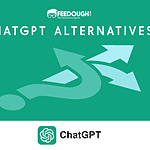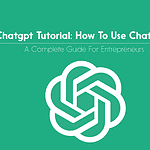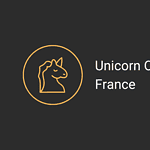In its very young existence, ChatGPT has already made a splash in the entire tech industry and has gathered the appreciation and attention of 100 million users worldwide. ChatGPT is a chatbot that talks almost like a human, understands humour, and gets the nuances of language – now that’s ChatGPT for you!
Despite the competition from Google as Bard and from Microsoft as Bing, ChatGPT seems to be growing and has a flourishing future. But who owns ChatGPT? How is Elon Musk related to the chatbot? What have been the key milestones of the application since its birth, and what is its future outlook? We’ll discuss these and more topics related to ChatGPT in this article.
What is ChatGPT?
ChatGPT is a sibling of InstructAI, trained to respond to the prompts and answer in detail. ChatGPT was created in 2022 and was launched on November 30, 2022, by OpenAI. However, the company OpenAI was founded in 20215 by Sam Altman, Elon Musk, Ilya Sutskever, and others.
Essentially, ChatGPT is a chatbot developed by OpenAI. It is trained on 300 billion words available online till 2021 and 175 billion parameters. It is built on OpenAI’s GPT-3.5 and GPT-4 families of large language models (LLMs).
ChatGPT can generate text, translate languages, write different creative content, including blogs, books, product descriptions, and songs, and answer your questions about any niche or industry informatively. This showcases the ideas of OpenAI’s creators, who wanted to make smart AI models that can talk and help people with many different things.
Who Owns ChatGPT?
OpenAI owns ChatGPT. OpenAI is a non-profit (now switched to for-profit) research company founded in 2015 by Elon Musk, Sam Altman, and a few other prominent names in the tech industry, including Peter Theil, Ilya Sutskever, Jessica Livingston, Reid Hoffman, Greg Brockman, Wojciech Zaremba, and John Schulman.
However, the current CEO of OpenAI, the parent company of ChatGPT, is Sam Altman, known as the company’s major contributing partner.
ChatGPT Parent Company: OpenAI
OpenAI is the parent company of ChatGPT. It was founded as a non-profit research company based in San Francisco, California. The company switched from non-profit to for-profit in 2019 as it claimed that it wanted to secure its resources and funding needs to attract more funds and partnerships to get better help in the research and development of AI. This change allowed them to attract more investments, develop strategic partnerships, and ensure they had the financial means to advance AI.
The OpenAI is a team of hundreds of researchers and engineers who aim to research and work on generative models to develop safe and beneficial artificial general intelligence that aligns with human values. And that is why they created ChatGPT, which can help people vocalise their thoughts in better words and ways.
ChatGPT Founders
There is no one founder behind ChatGPT. It is a product of the research and development company, OpenAI, where hundreds of researchers and engineers worked cohesively on this project.
However, the visionary of ChatGPT was Greg Brockman, who foresees a society in which intelligent computers and people might coexist in peace, to which Sam Altman also contributed and took the project further.
However, OpenAI, the company behind ChatGPT, was co-founded by Elon Musk and Sam Altman in 2015.
The team of researchers and engineers at OpenAI, who worked on and developed ChatGPT, was led by Ilya Sutskever and Dario Amodei. Ilya Sutskever is a renowned AI researcher and also the co-founder of OpenAI.
Does Elon Musk Own ChatGPT?
Even though Elon Musk was one of the co-founders of OpenAI, the parent company of ChatGPT, and also gave funding of $100 to the company, he exited the board of directors in 2018. Thus, we can say Elon Musk does not own ChatGPT or even has no more stakes in its parent company OpenAI nor is he a contributing partner anymore.
But, how come, when Elon Musk left OpenAI in 2018, he was said to be a contributing partner of ChatGPT?
That is because his earlier contributions and support in monetary and guidance forms continued to indirectly influence and contribute to OpenAI’s projects, including ChatGPT.
Since his initial involvement helped shape the organisation’s direction and mission, which also left a lasting impact on OpenAI’s ongoing work and development in artificial intelligence, he was listed as one of the founders of ChatGPT.
Major Acquisitions And Partnerships Of ChatGPT
Here’s to those who contributed to the creation of ChatGPT from both a financial and a resource point of view and companies that ChatGPT acquired and why.
- Microsoft: In February 2023, deepening its partnership with ChatGPT, Microsoft announced a $10 billion investment in OpenAI, making it the company’s largest shareholder. This investment will help OpenAI to develop ChatGPT and other artificial general intelligence technologies. On the other hand, this investment would enable Microsoft to enhance its capabilities in supercomputing systems, develop new AI-powered experiences, and maintain its exclusive role as OpenAI’s cloud provider.
- Andreessen Horowitz: It is a venture capital firm that has invested in 1388 tech companies, including Facebook, Twitter, and Airbnb. The firm has invested in OpenAI since its advent in 2015.
- Peter Thiel: Peter Thiel is a German-American billionaire entrepreneur, political activist, and venture capitalist. He is a co-founder of PayPal, Palantir Technologies, and Founders Fund and the first outside investor of Facebook. He is also a major investor in OpenAI and has been a vocal advocate for the development of artificial general intelligence.
- Sam Altman: The CEO and co-founder of OpenAI, also a former president of Y Combinator, a startup accelerator, has invested in OpenAI monetarily and also played a pivotal role in leading the way of OpenAI towards its advancements in AI.
- Khosla Ventures: It was the first venture capitalist to invest in OpenAI in 2019 when the company switched from being a non-profit to a for-profit organisation.
- Global Illumination: The acquisition of Global Illumination is known as OpenAI’s first acquisition. OpenAI said that acquiring Global Illumination would help it “build more creative and engaging AI experiences”. The company also said it would help it “expand its capabilities in the areas of natural language processing, computer vision, and machine learning.”
These are just a few investors, and many more have extended their partnership and support for the development of the chatGPT and the company OpenAI. Since its beginning, the ChatGPT has set various milestones and is developing exceptionally well.
Key Milestones In ChatGPT History
There are just a few key milestones of the evolutionary journey of ChatGPT, as it is still a technology which is still under continuous development.
Here are a few key milestones in the history of ChatGPT:
- November 2022: ChatGPT is first announced.
- December 2022: ChatGPT is released to the public as a free research preview.
- February 2023: Microsoft announces a $1 billion investment in OpenAI, making it the company’s largest shareholder.
- March 14, 2023: OpenAI releases GPT-4 in ChatGPT and Bing, which promises better reliability, creativity, and problem-solving skills.
- April 23, 2023: OpenAI releases ChatGPT plugins, GPT-3.5 with browsing, and GPT-4 with browsing in ALPHA.
- May 15, 2023: OpenAI launches the ChatGPT iOS app, allowing users to access GPT-3.5 for free.
- June 2023: ChatGPT is used to generate a realistic dialogue between two AI chatbots that is indistinguishable from human conversation.
- September 2023: ChatGPT is used to create a new type of AI-generated music that is more expressive and emotional than previous AI music.
- October 2023: ChatGPT is used to develop a new AI-powered writing assistant to help writers generate better content.
As the company kept evolving, it spread its roots worldwide and now exists with various headquarters at diverse places in the world for smooth functioning.
Where Is ChatGPT Headquartered?
ChatGPT is headquartered in San Francisco, California, United States. The company also has offices in Seattle, Washington, and Austin, Texas, with the mission to revolutionise how people interact with technology and make AI accessible to all.
What is ChatGPT’s Mission Statement?
The mission of ChatGPT is to ensure AI benefit the entire humanity.
Through advanced AI technology, Chat GPT intends to revolutionise communication so that individuals, businesses, and communities can exchange ideas efficiently and effectively, engage in meaningful conversations, and unlock the potential of human collaboration.
This also means that the company is committed to developing ChatGPT in a way that is safe, ethical, and beneficial to society.
Future Outlook Of ChatGPT
ChatGPT’s growth in user numbers from 100 million to 200 million over the past six months, its paid version release, millions paying for the plugins, and much more suggest that ChatGPT has a brimming future and has sincere growth plans for the future.
But before we discuss the future plans of ChatGPT, let’s see what are the challenges and opportunists that ChatGPT is facing and how they are addressing the same:
- The Chatbot being biased: ChatGPT is trained on a massive dataset of text and code, which means that it is susceptible to the biases that exist in that data. The company is working to address this challenge by developing methods to identify and remove bias from ChatGPT’s training data.
- The safety challenge: ChatGPT is a powerful tool that could be used for malicious purposes. But, as the company is well aware of what’s happening and going wrong, they say that safety is still on their priority list and that they are working to develop safeguards to prevent ChatGPT from being used for harmful activities.
- The opportunity to improve communication: The OpenAI created ChatGPT just to enhance communication between people and machines. And for that reason, the company is constantly working to develop new ways to make ChatGPT more natural and human-like in its interactions and make it convenient for its entire user base to communicate better.
- The opportunity to create new products and services: ChatGPT offers its API so that it can be used to develop new ChatGPT-like products and services that are not possible with traditional technologies. Thus, different companies are exploring ways to use ChatGPT to create new applications in education, healthcare, and other industries. For example, Myntra introduced ChatGPT in its apps to match customers with the right shopping requirements. Similarly, different companies are finding different ways to include ChatGPT into their system to offer a better user experience to their customers.
The key leaders of ChatGPT, including Sam Altman, the CEO of OpenAI, and Ilya Sutskever, the chief scientist of OpenAI, envision ChatGPT to be a force for good in the world, and they are developing the technology to bring this vision to life.
Overall, the future of ChatGPT seems bright. The company has a strong team of engineers and scientists and the resources to develop ChatGPT into a powerful and beneficial technology. ChatGPT’s challenges are significant, but the company is committed to addressing them. With continued development, ChatGPT has the potential to revolutionise the way we interact with computers and the world around us.
Ravpreet is an avid writer, prone to penning compelling content that hits the right chord. A startup enthusiast, Ravpreet has written content about startups for over three years and helped them succeed. You can also find her cooking, making singing videos, or walking on quiet streets in her free time.









